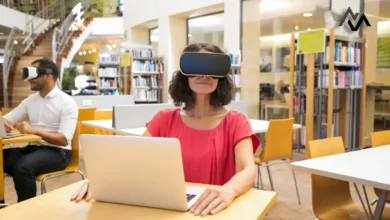8 Ways Your Learning Environment Can Shape Your Study Sessions

The environment you choose for studying plays a vital role in how effective your study sessions are. From the physical setup to ambient noise, every detail can either boost your concentration or make it harder to focus. Let’s explore eight ways your learning environment can influence your productivity and help you make the most of your study time.
1. Lighting: Illuminate Your Focus
Lighting is crucial to maintaining focus and reducing strain. Bright, natural light is optimal for studying as it mimics daylight, which can help keep you alert. Poor lighting, on the other hand, can cause eye strain and fatigue, making it harder to concentrate. If natural light is not available, use adjustable LED lamps with cool-toned bulbs to simulate daylight and maintain your focus.
2. Noise Levels: The Right Kind of Sound
Noise can either enhance or disrupt your study sessions. While some students prefer complete silence, others benefit from background noise or calming music. If silence is your thing, consider investing in noise-canceling headphones or finding a quiet spot like a library. For those who need ambient sound, consider listening to soft instrumental music or nature sounds that won’t distract you but keep your mind engaged.
3. Clutter-Free Zones: Clear Space for Clear Thoughts
Clutter can be a silent productivity killer. A messy desk or study space creates unnecessary distractions, making it harder to stay focused. Keep your study area clean and organized by decluttering regularly and only keeping essential items within reach. A minimalistic space can promote clarity and reduce the mental load, allowing you to concentrate better.
4. Temperature: Strike the Perfect Balance
A study space that is too hot or too cold can be uncomfortable and distract from your focus. Aim to maintain a moderate room temperature to keep yourself comfortable but alert. Studies suggest that cooler environments help with concentration, while excessively warm settings may induce drowsiness.
5. Comfortable Furniture: Ergonomics Matter
Ergonomically designed furniture can significantly impact how long you can study effectively. A chair that supports good posture and a desk that keeps your materials within arm’s reach can reduce physical strain and improve focus. Prolonged discomfort can be distracting, leading to frequent breaks or reduced productivity, so invest in a good study setup that prioritizes comfort.
6. Personalization: Create an Inspiring Space
Make your study environment your own by adding personal touches like motivational quotes, plants, or photos. Creating an inspiring and comfortable space can make studying more enjoyable. The goal is to feel relaxed but focused, so adding elements that encourage you to stay engaged with your studies is essential.
7. Air Quality: Freshness Fuels Brainpower
Air quality is an often-overlooked factor in setting up a productive study environment. Stuffy or poorly ventilated rooms can make you feel lethargic. Ensure your study space is well-ventilated, and consider adding air-purifying plants to improve oxygen levels. Breathing fresh air can stimulate brain activity and help you maintain mental sharpness during long study sessions.
8. Technological Setup: Keep it Efficient
While technology can be a great aid in studying, it can also be a source of distraction if not managed correctly. Make sure your devices are set up for productivity—disable notifications during study time and use apps that aid focus, like timers or study planners. A well-organized digital environment mirrors the need for an organized physical space, helping you stay on track.
Conclusion
Your learning environment plays a critical role in shaping how effective your study sessions are. From lighting to noise, every aspect can either support or hinder your ability to focus. By consciously designing your study space to minimize distractions and promote comfort, you can dramatically improve your productivity and the quality of your learning experience.




